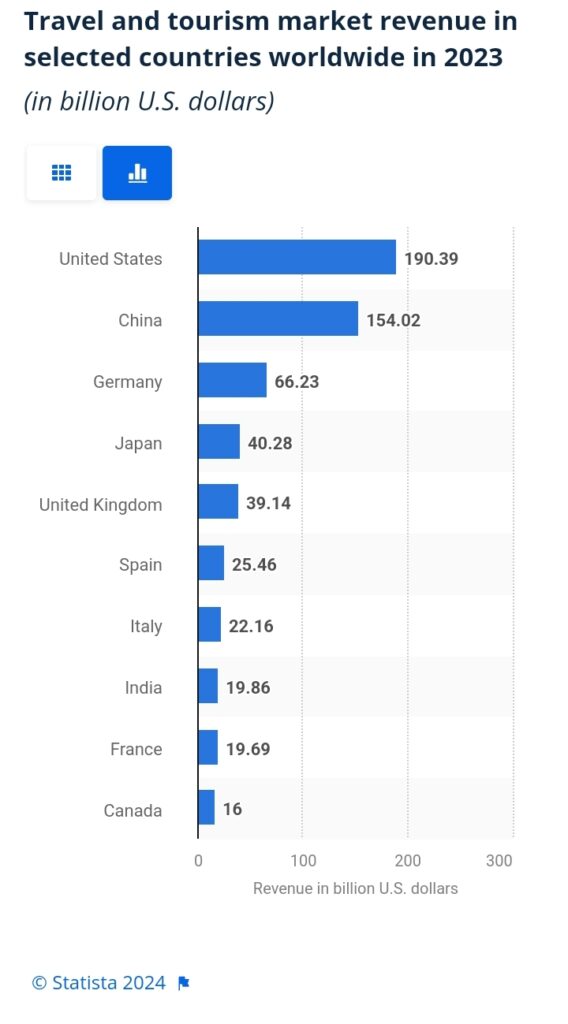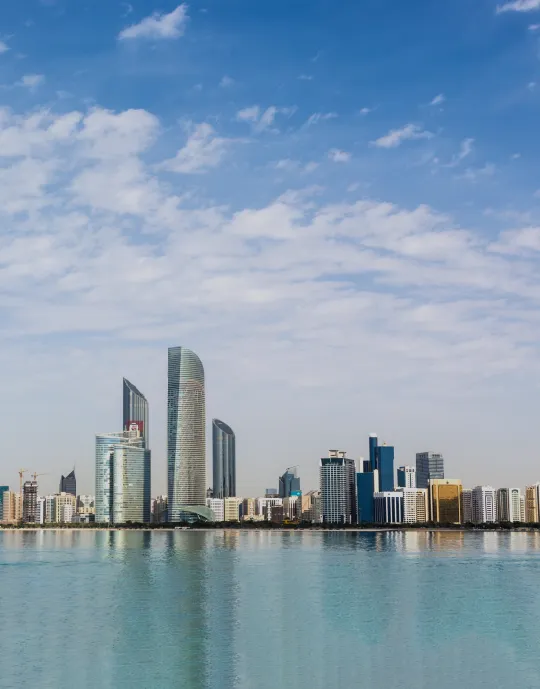
Tourism has become the heartbeat of major economies around the globe especially the developed countries. Tourism is a multi-billion dollar industry that has capacity to transform not only the fortunes of developing countries in Africa but livelyhoods of its people to. Leading the pack in tourism earnings globally is the United States, followed by China and it’s no wonder the scramble for global superiority and supremacy revolves around these two leading tourism destinations. Unfortunately no African country features in the top 10 leading countries in tourism revenue.

What’s of relevance to note here is that African Governments must pick keen interest in Tourism business as a major game changer in economic growth . By this I don’t mean, Government setting aside a few millions of dollars for tourism promotion and marketing but rather Government must invest heavily to bridge the infrastructural gap and deficiency that is hurting the growth potential of most developing countries.
Tourism Destination Marketing is largely pegged to the quality of tourism infrastructure in the host country alongside the quality of service delivery. No amount of tourism promotional expenditure and advertising can yield lasting results without a good, well looked after Product. The Tourism Product is a combination of the 5 A’s (attributes) that range from Attractions, Accommodations, Amenities, Accessibility and Activities.

For Purposes of this article, I’ll focus on why Governments in African countries need to prioritize investment and active involvement in the second attribute above which is Accommodation. The Hotel industry is a major pivot in global tourism business. Luxury Hotels are not only a Pull Factor for Tourists into the Destination but the large Hotel Chains and Resorts bring a host of benefits into a destination that include but not limited to global marketing networks within their possession , high hospitality standards, increase in supply of luxury beds, and above all a moderate pricing structure for luxury hotel services induced by adequate supply within the destination.

Currently, Many will agree with me that most African Tourist destinations are overpriced destinations in as far as luxury accommodation in concerned. The average rate of a luxury hotel room in most African capitals and tourist zones goes for appx. $250 per night on Bed and Breakfast. This gets even further interesting in the National parks and protected areas where a Mid-Range Safari Lodge costs on average appx. $400 per night on Full board.
Friends, if your asking about the biggest deterrent to Africa’s tourism growth , it all starts from here. Where is the value for money? How competitive is this hotel pricing structure compared to other top tourism destinations globally? I will not delve into why many Africans flock to Dubai, Thailand , Malaysia etc.

Bottom line is Africa is short of high quality Hotel Infrastructure. Therefore the few high end hotels and Lodges will charge exorbitant rates as a result of monopoly and limited alternatives. Unfortunately this hurts the competitiveness of Africa as a Tourist destination despite all marketing and promotional efforts. Secondly, the would be lucrative domestic tourists will seek luxury experiences abroad due deficiencies and inadequate facilities back home. As a Tour Operator in East Africa, the biggest cost component in any tour package is the accommodations, the higher the accommodation charges , the more expensive the package will become and thus a deterrent to tourists. The Post Covid era and New Normal has introduced a kind of traveler, who is more independent, more informed and price sensitive.
How African Governments can bridge to Hotel Infrastructural Gap.

It’s very clear now that with the possible increase in stock of more luxury hotels and global hotel in chains with the likes of JW Marriot, Radisson, Hyatt hotels and more onto the African market and tourist zones, Africa will eventually emerge from being just a potential tourist hotspot into real tourism giant on the Global scene.
What needs to be done?
Governments in Africa need to unlock the Public Private Partnership model (PPP) to proactively influence the entry and spread out of these top multi- national hospitality giants into the African Market. This is purely on strategic grounds, to ensure competitiveness Africa’s Tourism Product and building investor confidence in Africa as a destination for global hospitality chains. As a major share holder in these luxury hotels and resorts, A Government in any African has got the capacity to influence the distribution of these hotel brands to strategic tourist locations within that specific country. Believe me Africa, will never stay the same as a tourist destination.

Entry of these major hotel chains into a destination is not achieved by merely good presentations on conducive investment climate and tourism potential of the country. Successful Governments across the world have taken proactive steps and actions to induce these heavily Capital intensive tourism infrastructural developments.
Government Capital investments shouldn’t just be limited to other infrastructure like roads, airports , Dams and more as is the norm but priority should be given to the Hotel Infrastructure as a precursor to the lucrative Tourism Development. Governments have the capacity to raise the much needed Capital investment as a strategic shareholder, Government holds access to strategic Land for this purpose, Government is in control of an array of incentives to lure these multinational hotel chains. Why should a naturally gifted African Country lack at least 10 International 5 Star Resorts/hotel chains operating within it’s borders? And yet we aim to turn Africa into a top/competitive tourist destination. This is unacceptable.
Successful Case Studies on the African Continent.

Uganda in East Africa , through it’s National Enterprise Corporation and Nile Hotel Limited, the Hospitality business arm of government , set up a good engine and vehicle to drive the agenda getting the Government back into Hospitality Business . This model has already been tested and success recorded with Speke Resort and Convention Centre in Munyonyo that successfully hosted the NAM conference and the Serena Hotel in Kampala are very good case studies, and proof of concept.
Lessons from ABU DHABI – UAE

Fifty years ago, His Highness Sheikh Zayed bin Sultan Al Nahyan, the founding father of the UAE, declared his intent to diversify the nation’s sources of income beyond oil. This intent has been brought to life through the sustained diversification of the UAE’s economy with specific focus on Business Tourism.
ADQ was established as a government subsidiary and investment arm of ABU DHABI . Since inception, ADQ has served as a long-term investor that is accelerating the transformation of Abu Dhabi into a globally competitive economy.

ADQ and its tourism assets are supporting the government’s 2030 strategy and working to enhance Abu Dhabi’s tourism offering. This is being achieved by strategically building on its exhibitions and conferences market share and increasing Abu Dhabi’s attractiveness as an international tourism destination for all visitors.
With all these lessons and African Governments already yearning to position countries to thrive in the Hospitality & Tourism industry, the eventual benefits that will accrue to each country as a Tourism destination will be enormous. Not only, will the tax base widen and Tourism’s contribution to GDP rise, but we’ll also see more retention of forex within the economy, since the number Africans traveling abroad to seek luxury experience will be able to enjoy this at home. The number of employment opportunities and supply chain ripple effect as a result of these multinational hotel chains will be enormous. The Much needed International publicity for Africa as a top tourist destination through these multinational hotel chains will be attained with very minimal cost , thanks to their vast networks and global presence.

The appeal is for policy makers , planners and strategic managers on the African continent to study this approach that could become a game changer for Africa’s Tourism.
By Eddy Kirya . Msc. Tourism & Hospitality Mgt ( MUK)
Independent Destination Marketing Expert, eddykirya.com
Former Member , Board of Directors , Uganda Tourism Board. ( UTB)
Chief Executive Officer at Eyalama Adventures Ltd
